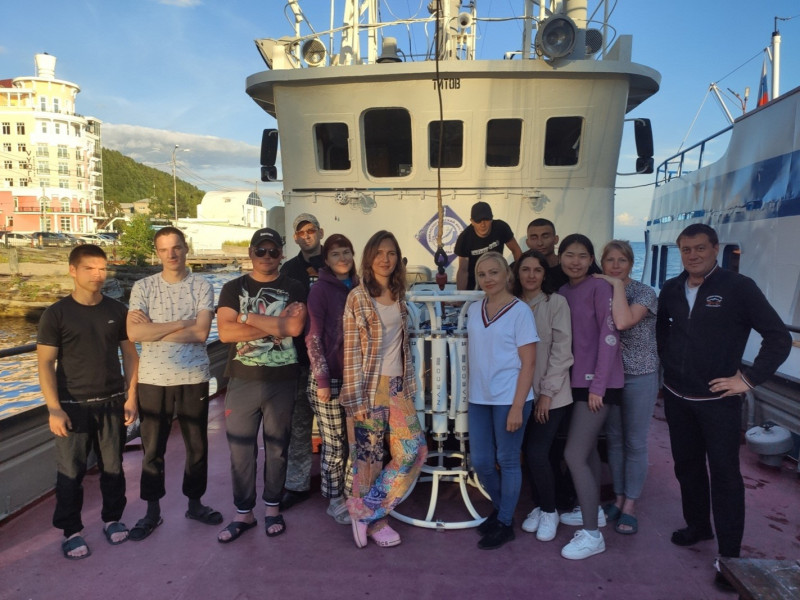Expedition onboard the R/V “Titov” on July 16-25, 2024
On July 16-25, 2024, an expedition onboard the R/V “Titov” took place within the State Assignment No. 0279-2021-0015 “Studies of viral and bacterial communities as a basis of stable functioning of freshwater ecosystems and effective response to anthropogenic impact” (led by Belykh O.I.). Field work was carried out in the pelagic zone of Lake Baikal at the central stations of the transects of Listvyanka - Tankhoy settlements, Cape Ukhan - Cape Tonky, Cape Elokhin - Davsha River, in the littoral zone near Vydrino town, Tanhoy settlement, Listvyanka settlement, Bolshiye Koty settlement, Bolshoye Goloustnoye settlement, Babushkin town, Peschanaya and Babushka Bays, Posolsky Sor, Aya Bay, Maloye More Bay, Turka settlement, Chivyrkuysky and Barguzinsky Bays, Cape Shartlay, Cape Zavorotny, Cape Yu. Kedrovy, Severobaikalsk town, Nizhneangarsk settlement, hydrothermal springs Khakusy and Zmeiny, and Lake Kotokel.
The purpose of the expedition was to obtain data on the quantitative distribution of sanitary-positive microorganisms in the Lake Baikal ecosystem; to study the genetic, taxonomic, functional composition, and structure of microbiomes (including viromes) of various ecotopes of Lake Baikal.
The planned field work was carried out in full. Studies were carried out at 59 stations. We collected 106 water samples for sanitary-microbiological research, 36 samples of phytoplankton and autotrophic picoplankton, 69 plankton samples for chlorophyll determination as an indicator of water body trophicity, 69 plankton samples for total DNA isolation and further molecular-biological works, 5 water samples (total volume of 200 l) for metagenomic analysis and viral fraction analysis, and 69 water samples for hydrochemical analysis. For the experiment on the biodegradation of microcystin by bacterioplankton, 12 samples were collected from different parts of Lake Baikal and Lake Kotokel.
The planned field work was carried out in full. Studies were carried out at 59 stations. We collected 106 water samples for sanitary-microbiological research, 36 samples of phytoplankton and autotrophic picoplankton, 69 plankton samples for chlorophyll determination as an indicator of water body trophicity, 69 plankton samples for total DNA isolation and further molecular-biological works, 5 water samples (total volume of 200 l) for metagenomic analysis and viral fraction analysis, and 69 water samples for hydrochemical analysis. For the experiment on the biodegradation of microcystin by bacterioplankton, 12 samples were collected from different parts of Lake Baikal and Lake Kotokel.






















